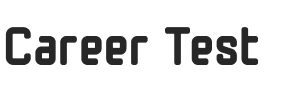Exploring the Best Careers to Switch To: A Guide for Success

Switch Careers at 30 or 40
Get StartedIn the dynamic landscape of today's job market, many individuals find themselves contemplating a career change. Whether motivated by the desire for fulfillment, better work-life balance, or financial growth, switching careers can be a transformative journey. If you're pondering a transition but wondering what careers to switch to, you're in the right place. This article delves into the best options available and provides valuable insights to guide you.
Understanding the Motivation to Switch Career
Motivations for making a career switch can vary greatly. Some people pursue new careers out of passion, while others seek better job security or opportunities for advancement. Reflecting on your motivations is crucial before leaping. Opting for the easiest careers to switch to shouldn't always be the primary focus; it's about finding a fulfilling path.
Consider conducting a self-assessment or a career switch quiz for free to pinpoint strengths and interests. Identifying your core values and desired lifestyle can guide you to suitable fields. Evaluating your current skills and how they transfer to other industries is a smart strategy.
Choosing the Best Careers for a Successful Transition
The best career switch at 30 often depends on your individual circumstances. Many thriving fields are today’s prime candidates for career changes, offering robust growth potential and satisfaction. Careers in technology, healthcare, and education are widely recommended for career changers.
Navigating through the job market, it becomes evident that certain roles are particularly in demand. Such roles include software development and data analysis, which fall within the realm of technology. Amidst the best careers to switch at 40, the healthcare sector shines as a promising choice, with options ranging from nursing to healthcare administration. For individuals driven by the passion to inspire and educate, embarking on a career in education can be an extremely rewarding and impactful journey.
For those specifically considering a career switch at 40, roles in consultancy, project management, or entrepreneurship might align better with seasoned experience.
Practical Steps for Making a Career Transition
Switching careers successfully requires careful planning and execution. Here are some steps to help make your career transition smoother:
- Research your new field extensively to understand the industry trends.
- Enhance your skills through online courses or workshops relevant to your new career.
- Network within the industry through events or online platforms like LinkedIn.
- Consider internships or volunteering to gain hands-on experience.
- Create a strategic job application that highlights transferable skills.
Finding the best way to switch careers often involves a combination of education, networking, and practical experience.
Analyzing Career Switch Surveys and Tools
Utilizing a career switch survey to identify career path can provide personalized insights and recommendations. These tools analyze your skills, interests, and values to suggest potential career paths that align with your profile.
With a multitude of online resources available, individuals who are contemplating making a career switch often find great value in seeking guidance. By actively participating in career counseling services or engaging with professional career coaches, they can gain clarity and make more informed decisions about their future, while potentially opening doors to a whole spectrum of new opportunities.
FAQ Section: Making a Career Switch
- What are the first steps to take when considering a career switch?
Start by evaluating your personal interests, skills, and values. Research potential new fields and consider what aligns best with your goals.
- Is it feasible to switch careers later in life?
Yes, many people successfully transition to new careers at various stages of life, including later years. It's about finding a field that matches your current skills and interests.
- How can I gain experience in a new field?
Consider internships, volunteering, or part-time roles to gain relevant experience. Online courses and certifications can also be helpful.
- What resources are available for career switching?
Look into career counseling, online courses, workshops, and networking events to gather information and make informed decisions.
- How can I identify skills that are transferable to a new career?
Reflect on your past experiences and accomplishments, and consider how those skills can be applied to your desired field. Many industries value similar competencies.
Embarking on a new career path is a significant decision that can lead to personal growth and satisfaction. Whether you're wondering what career should I switch to or exploring new options actively, remember that a successful transition is achievable with the right planning and mindset.
